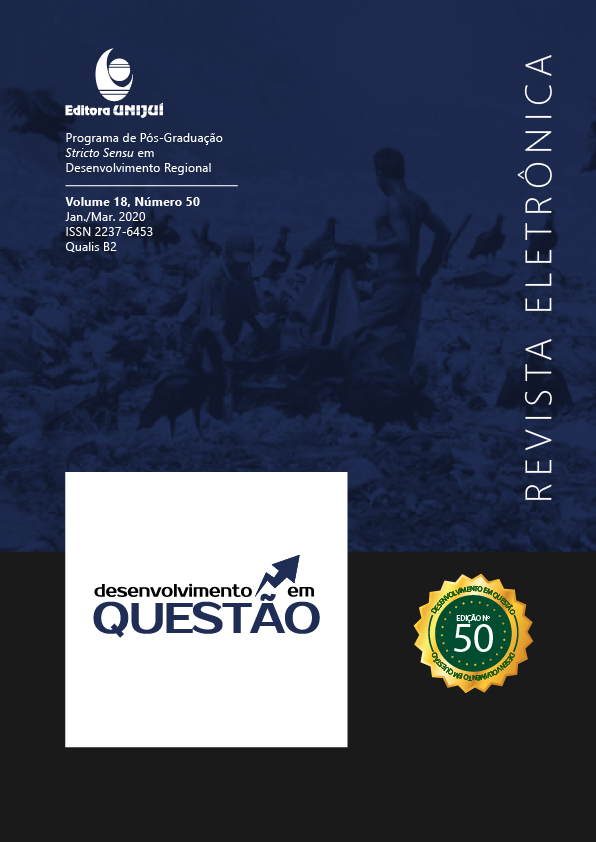Territorialidade e Relações de Poder nos Assentamentos Rurais do Município de Nova Andradina/MS
DOI:
https://doi.org/10.21527/2237-6453.2020.50.72-88Palavras-chave:
Reforma agrária; Luta pela terra; Questão agrária; Movimento dos trabalhadores rurais sem terra.Resumo
O presente estudo tem por objetivo demonstrar como as relações socioespaciais se territorializam nessa fração de território, apresentando análises da produção camponesa, destacando as diferenças no tamanho dos lotes, o período de criação dos Projetos de Assentamentos (PAs), suas estruturas produtivas, suas relações comerciais, entre outras. Utilizou-se como metodologia, a pesquisa qualitativa e a história oral, por meio de entrevistas junto aos assentados do município, preservando sua identidade e de demais participantes da pesquisa. Com os resultados podemos compreender que os processos de configuração territorial nos Projetos de Assentamentos no município de Nova Andradina/MS, possuem várias conflitualidades neste campo de estudo. Estas relações e configurações se iniciam antes mesmo de se estabelecer um processo de desapropriação, seja com os proprietários de terras e suas relações de poder que envolvem a centralidade agrária a qual estão inseridas, ou mesmo, os interesses sociais, políticos e econômicos gerados nos conflitos pelo uso e posse da terra.
Downloads
Publicado
Como Citar
Edição
Seção
Licença
Ao publicar na Revista Desenvolvimento em Questão, os autores concordam com os seguintes termos:
Os trabalhos seguem a licença Creative Commons Atribuição 4.0 Internacional (CC BY 4.0), que permite:
Compartilhar — copiar e redistribuir o material em qualquer meio ou formato;
Adaptar — remixar, transformar e criar a partir do material para qualquer fim, inclusive comercial.
Essas permissões são irrevogáveis, desde que respeitados os seguintes termos:
Atribuição — Atribuição — os autores devem ser devidamente creditados, com link para a licença e indicação de eventuais alterações realizadas.
Sem restrições adicionais — não podem ser aplicadas condições legais ou tecnológicas que restrinjam o uso permitido pela licença.
Avisos:
A licença não se aplica a elementos em domínio público ou cobertos por exceções legais.
A licença não garante todos os direitos necessários para usos específicos (ex.: direitos de imagem, privacidade ou morais).
A revista não se responsabiliza pelas opiniões expressas nos artigos, que são de exclusiva responsabilidade dos autores. O Editor, com o apoio do Comitê Editorial, reserva-se o direito de sugerir ou solicitar modificações quando necessário.
Somente serão aceitos artigos científicos originais, com resultados de pesquisas de interesse que não tenham sido publicados nem submetidos simultaneamente a outro periódico com o mesmo objetivo.
A menção a marcas comerciais ou produtos específicos destina-se apenas à identificação, sem qualquer vínculo promocional por parte dos autores ou da revista.
Contrato de Licença (para artigos publicados a partir de 2025): Os autores mantêm os direitos autorais sobre seu artigo, e concedem a Revista Desenvolvimento em Questão o direito de primeira publicação.











